March 6, 2025 | 23:50 GMT +7
March 6, 2025 | 23:50 GMT +7
Hotline: 0913.378.918
March 6, 2025 | 23:50 GMT +7
Hotline: 0913.378.918
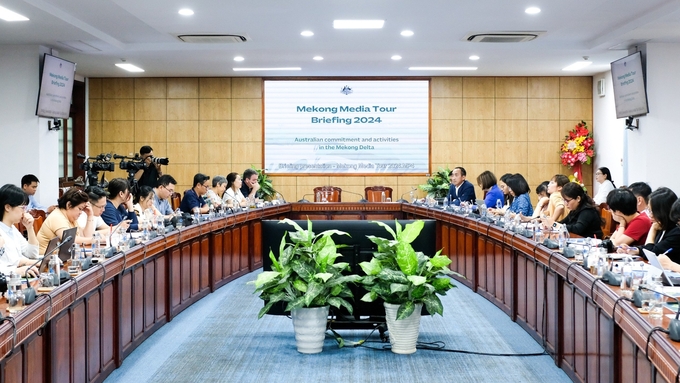
The meeting between Australia and sustainable development partners in the Mekong Delta at Can Tho University on the afternoon of March 18. Photo: Quynh Chi.
On the afternoon of March 18th, at Can Tho University, Mr. Ciaran Chestnutt, Deputy Consul General of Australia in Vietnam, collaborated with scientific research partners and international organizations on sustainable development in the Mekong Delta.
Since establishing diplomatic relations in 1973, Vietnam and Australia have witnessed significant mutual development. On March 7th, during the special Summit commemorating 50 years of ASEAN-Australia relations, the two governments elevated their relationship to a Comprehensive Strategic Partnership. The partnership between Australia and Vietnam extends beyond economic cooperation to encompass broader societal benefits. Cultural exchange programs, educational collaborations, and people-to-people ties strengthen the bond between the two nations. These initiatives foster mutual understanding, respect, and friendship, laying a robust foundation for long-term cooperation. Moreover, Australia's commitment to sustainable development aligns with Vietnam's environmental preservation and socio-economic progress aspirations.
In recent years, Australia has actively implemented various projects in Vietnam. Notably, these include initiatives such as Promoting Gender Equality through Improving Economic Efficiency of Agricultural Production and Tourism Development, Improving Animal Welfare in Vietnam, and Adaptation to Climate Change in the Mekong Delta. Australia has also shown keen interest in the sustainable development project spanning 1 million hectares, focusing on high-quality, low-emission rice cultivation in the Mekong Delta, thereby contributing to the region's significance as the primary rice granary of the Asia-Pacific.
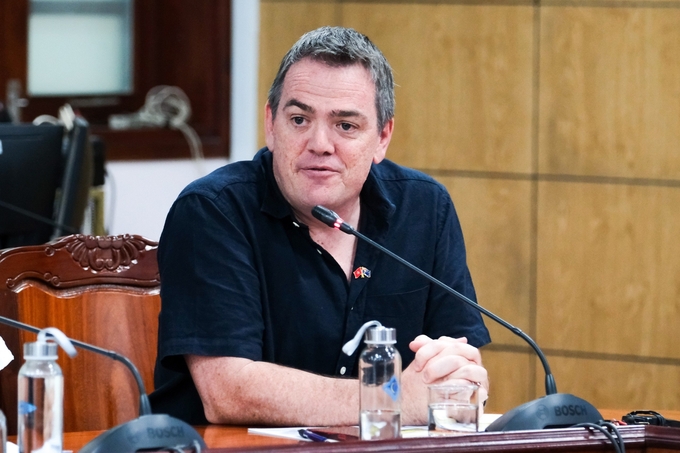
Mr. Ciaran Chestnutt, Australian Deputy Consul General in Vietnam, affirmed the importance of the Mekong Delta to ensure food security in Asia - Pacific. Photo: Quynh Chi.
"From friendship to comprehensive strategic cooperation, the Vietnam-Australia relationship is flourishing, offering numerous opportunities and potentials for both countries in the future," remarked Australian Deputy Consul General Ciaran Chestnutt. "One of Australia's top priorities in foreign policy is to support farmers in the Mekong Delta region in adapting to climate change. We view the Mekong Delta as pivotal in transforming agricultural and aquatic product value chains. Consequently, Australia is committed to assisting the people of the Mekong Delta in practicing sustainable agriculture and aiding localities in constructing rural infrastructure.”
However, the Australian representative assessed that the Mekong Delta region's economic growth has slowed down due to incomplete value chains, a limited agricultural labor force, and weak intra-regional and inter-regional infrastructure networks. The 94.5 million AUD program to support climate change response in the Mekong Delta is a significant cooperation initiative between the two countries.
According to Mr. Chestnutt, Australia's vision and responsibility include not only being a development partner but also aiming to become a major investor in Southeast Asia.
Speaking at the meeting, Associate Professor Dr. Nguyen Hieu Trung, Vice Principal of Can Tho University, expressed gratitude to Australia for its professional support for the country's scientific endeavors. Mr. Trung emphasized that the university's research projects are geared toward practical applications, striving to translate laboratory results into direct benefits for the farming community. Consequently, Can Tho University increasingly focuses on researching plant varieties, aquaculture, disease prevention, and smart production model management methods.
Furthermore, Associate Professor Dr. Nguyen Hieu Trung highly praised the close cooperation between the Government and the people of Australia in training agricultural human resources for Vietnam. Thanks to support from Australia, domestic agricultural science human resources are continually improving in quality. Under the Mekong-Australia Partnership program, Can Tho University had 116 candidates receive funding, including 8 doctoral and 108 master's candidates.
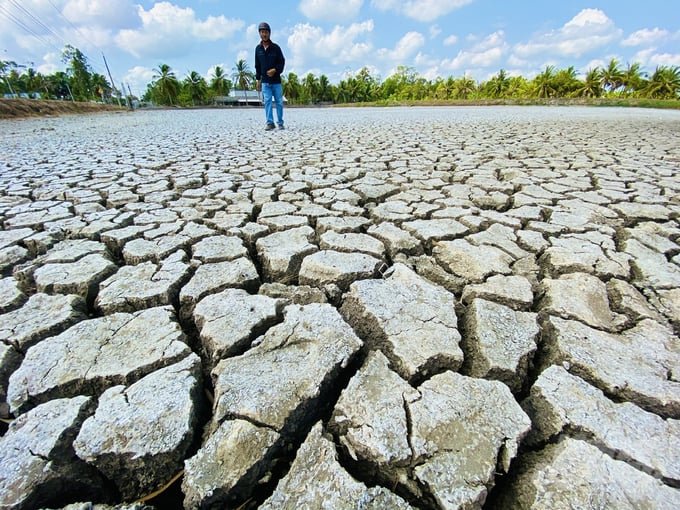
Australia will deploy the 94.5 million AUD Aus4Adaptation program in the Mekong Delta in 2024. Photo: Le Hoang Vu.
In particular, the Australian Center for International Agricultural Research (ACIAR) is considered a crucial partner, collaborating with Can Tho University in implementing research and development (R&D) projects that yield effective solutions for Vietnamese farmers. The Center's representative noted that cooperation programs have provided clear economic benefits. Specifically, Australian investment projects in Vietnam have yielded high profits, with a return ratio of 90 AUD in profit for every 1 AUD of investment, compared to the global average investment return ratio of 43:1. The economic cooperation between ACIAR and the Mekong Delta provinces has shown positive results.
Looking ahead, Australian partners will implement the Aus4Adaptation funding package, valued at 94.5 million AUD, for climate change adaptation in the Mekong Delta from 2023-2034. Of this amount, 75 million AUD will support localities in establishing and building a center for sharing knowledge on socio-economic development. This center is expected to become the focal point for innovation in agriculture in the Asia-Pacific region, enhancing the community's role and empowering farmers.
By working together on initiatives like climate change adaptation, agricultural innovation, and knowledge sharing, both countries contribute to regional stability and prosperity. As the program unfolds, it symbolizes not only a financial investment but also a commitment to fostering resilience, sustainability, and shared prosperity in the Mekong Delta and beyond.
Translated by Quynh Chi
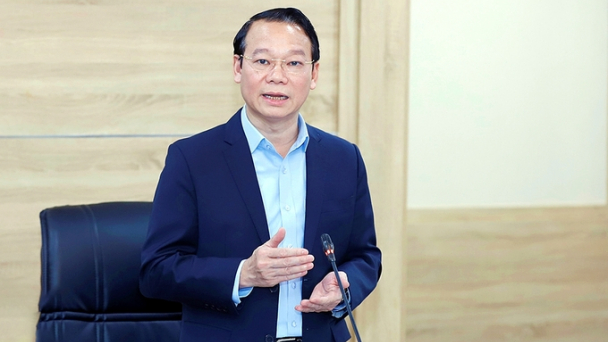
(VAN) Minister Do Duc Duy took note of this issue and emphasized that, in addition to sustainable development, the sector must adopt a multi-purpose approach to ensure social welfare.
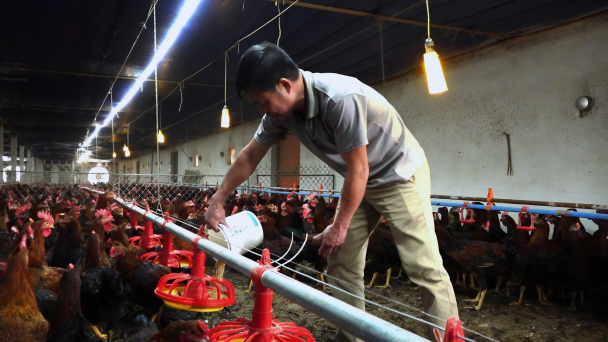
(VAN) Farmers should keep poultry houses dry, regularly disinfect them, replace bedding materials, and supplement with vitamins and electrolytes to boost the animals' immunity.
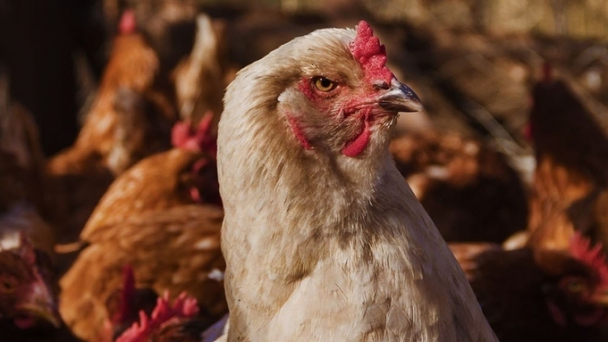
(VAN) In Vietnam, protective measures and standards for controlling Salmonella in livestock farming have not been fully updated or completed, making the risk of infection real.
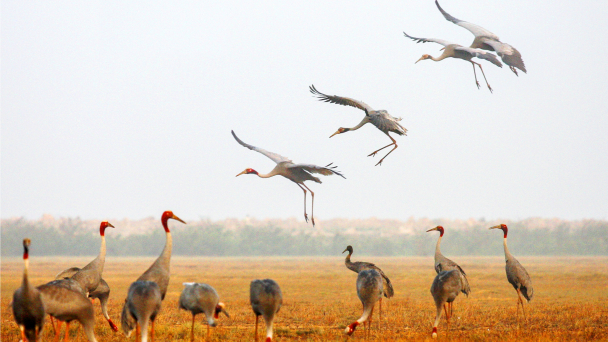
(VAN) The ecological model 'Rice Calls the Cranes Back' in Dong Thap becomes a highlight in integrating agricultural production with habitat conservation in Tram Chim National Park.
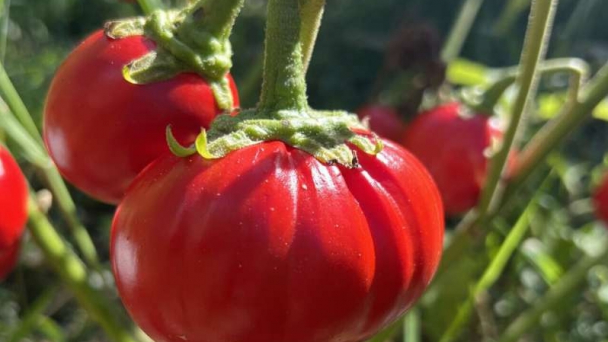
(VAN) Bigger, tastier tomatoes and eggplants could soon grace our dinner plates thanks to Johns Hopkins scientists who have discovered genes that control how large the fruits will grow.
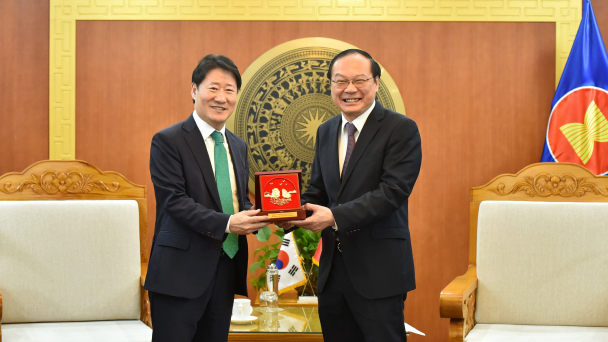
(VAN) Deputy Minister Le Cong Thanh states that Vietnam and South Korea need to strengthen cooperation in water resource management and river basin management.
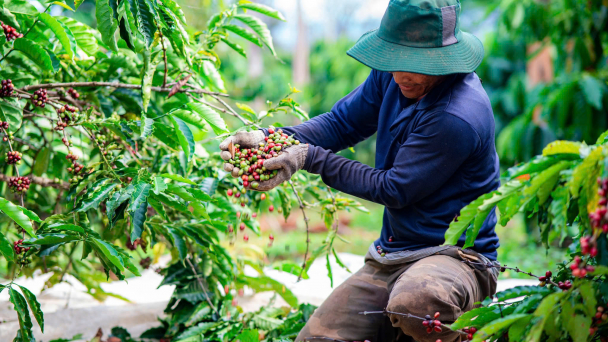
(VAN) The rise in coffee prices has led to an increase in the level of investment in care from farmers. As a result, the amount of waste from pesticides and fertilizers has surged dramatically.